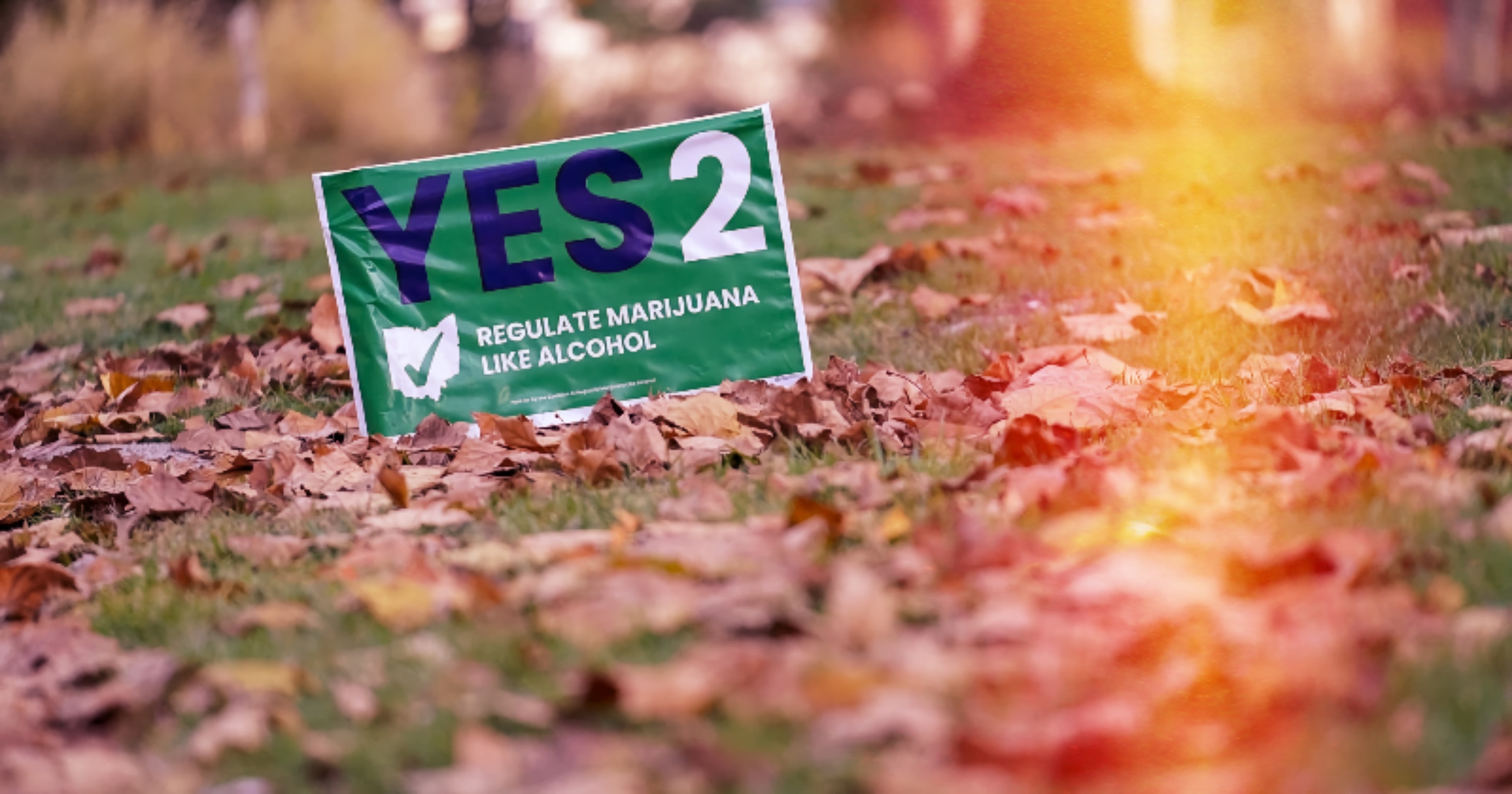I’ve spent my life as a cannabis activist and entrepreneur, but psychedelics have always been a part of my path. So I was delighted to pick up my news feed last year, while I was meeting with indigenous cannabis farmers in one of Colombia’s conflict zones, to read that a new generation of activists had passed the Decriminalize Nature initiative in my hometown of Oakland, California. The initiative made the cultivation and possession of visionary plants the lowest law enforcement priority, and I jumped for joy when I heard the news.
I come to the psychedelic renaissance through the prism of the cannabis renaissance. Starting in 2006 I have been the founder or co-founder of several pioneering California cannabis businesses: Harborside Health Center, Steep Hill Laboratory, and the ArcView Group. For better or worse, I am one of the people most responsible for the creation of a legal, for-profit cannabis industry – and my views on the psychedelic renaissance have been informed by that experience.
Until 2018, California’s medical cannabis market only allowed non-profit operations, at least in theory. Most of the people who chose to get involved in those years had a close personal relationship with cannabis and loved the plant, and the business models they put together reflected that. The values of compassion, inclusion, sustainability, and the love of freedom were at the core of the organizations they built.
This changed dramatically after California voters legalized cannabis in 2018. State agencies were empowered to create a highly regulated, for-profit cannabis market. Mainstream business people and investors came into the industry, drawn by the economic opportunity. Most of them did not have a relationship with the plant; and came because they saw a chance to make money quickly. If they weren’t in cannabis they would have been chasing a different hot opportunity.
These newcomers were better able to raise capital, secure permits, and build large organizations. They rapidly gained new licenses and even started buying up existing licenses, while the legacy medical cannabis companies struggled with the transition.
The change to a profit-making cannabis economy brought profound, unexpected and often harmful changes to the cannabis community. Power and influence were brought to bear in the writing of regulations, which in the end were stacked against small and medium sized legacy cannabis collectives. A huge number of the early pioneers, people who understood and loved and cared for cannabis more than anybody else, were squeezed out of California’s cannabis industry; and replaced by people attracted by the love of money– and the kind of education, messaging, experience, teaching and learning in California’s cannabis industry changed dramatically. The core values of compassion, inclusion, sustainability, and the love of freedom were eroded; and values of cost management, shareholder return, and hockey-stick growth curves have been made the higher priorities.
All this damage happened with cannabis, which I see as Mother Nature’s most gentle and forgiving visionary plant teacher. I worry about these same things happening with the commercialization of psychedelics, where I think the margin of error is a lot smaller.
Most of the world has little understanding of psychedelics, and many of those who do know about them are suspicious. We have a small little opening that’s been created with
some very creative research and activism, a precious chance to break through that ignorance and that superstition. But it has to be handled very, very carefully.
Corporations and especially publicly traded companies are legally obligated to prioritize making money. That mandate to turn a profit drives almost everything they do: the prices they set, the consumer experiences they create, the marketing they deploy, the pay and treatment of employees, etc. If you love human beings, if you believe in the spiritual, therapeutic, transformative power of psychedelics – your priority is to make sure everybody encounters psychedelics on a timetable which is designed to maximize the benefits of their experience. A publicly traded company will sit down with their board, look at the spreadsheets and ask about unit sales, margin and costs. And that’s going to lead to a very different set of product attributes, dosing instructions, marketing and messaging, and emphasis placed on integration.
Intention is also important to consider. One of the most important lessons I have learned on the psychedelic path is that intention is usually the most important factor in outcome. Another of those lessons is that the world needs more love and less greed.
If by definition commercial activity as we know it in our capitalist society is motivated by greed, then there are some basic questions to be explored. Can an organization whose ruling principle is acquisition and greed effectively undertake psychedelic projects whose desired goal is manifesting more love in the world? Can a company whose main motivation is to sell as many units, in the shortest period of time, with the least expense, and highest profit margin, really be entrusted to teach the world about psychedelics? Can we create the kind of changes we want to see from psychedelics – growing the power of love over the love of power – in a commercial framework?
I don’t have the answer for these questions, but I think it’s important for us to ask them and explore possible answers.
We have all been born out of a culture of death and dysfunction and greed and fear. We are necessarily creatures of that culture. We carry it within ourselves, and it will not be easy for us to work through these questions, and be the change that we want to see. It will require all of us helping each other in a way that is perceptive and fearless, and also gentle and loving enough so that we really build this thing together. There is not going to be any room for bullying each other in this realm. We need to come to this common place
together of our own volition and with free and open hearts. And I think the North Star Ethics Pledge gives us a framework to be able to do that.
The pledge is not a solution by itself. But I don’t think that is the point. It distills some of the most important lessons and wisdom I’ve learned from my psychedelic experiences, and expresses them in a language which is rich in poetry, and is free and open enough to allow every reader and every thinker who is exposed to it to integrate those principles in their own way. It is not a prescriptive document. It is not a document that says “this is the way you have to do it.” It says “this is the way we could think about this together as a community.”
The principles aren’t easy lessons. They are hard to integrate. What I like most about the Pledge is that it is community focused – we can all publicly commit to these principles and invite each one of us to live up to them. What we’re talking about is a process. The pledge is not something written down that is the truth, and that’s perfect. It’s a process that we’re all going to be engaging in. The principles in it are signposts for us to watch along the way, along this journey we are embarking on together.
I’d like to see all the founders of every psychedelic venture, for profit or nonprofit, taking two or three days to consult the medicine together, and in a ritual kind of way work through each of the principles and possible actions of the North Star pledge, asking each time: “how does this point apply to what we’re getting ready to do?” I think ventures who took the time to engage in that process would find it profoundly meaningful and extraordinarily valuable.
I believe the North Star Pledge will stand the test of time. I hope that one day I can faithfully live my life in accord with its principles. If I can come close to that I will feel like I’ve been an incredibly lucky person. If we all try our best, I believe we could make our journey back home shorter rather than longer.
In Love and Light, Steve DeAngelo
Steve DeAngelo is a pioneering cannabis entrepreneur, activist, author, and on-screen personality. He co-founded several iconic cannabis businesses and organizations: Harborside, one of the first six dispensaries licensed in the US; Steep Hill Laboratory, the first dedicated cannabis lab; the Arc View Group, the first cannabis investment firm; and the National Cannabis Industry Association, the industry’s first trade association. He currently serves as Chairman Emeritus of Harborside Inc, a vertically integrated California cannabis company.
Steve’s creative projects include a book, The Cannabis Manifesto; a Discovery Channel mini-series, Weed Wars; and a new weekly show, Ask Steve DeAngelo, on greenflowermedia.com. He was a lead organizer and fundraiser for I-59, Washington DC’s medical cannabis initiative; and is most famous for his successful litigation against the Department of Justice, which halted DOJ’s last-ditch 2011 campaign to shut down California’s medical cannabis dispensaries.
In recognition of these pioneering accomplishments, in 2015, former Speaker of the California Assembly and Mayor of San Francisco, the Hon. Willie L Brown called Steve the “Father of the legal Cannabis Industry.”







